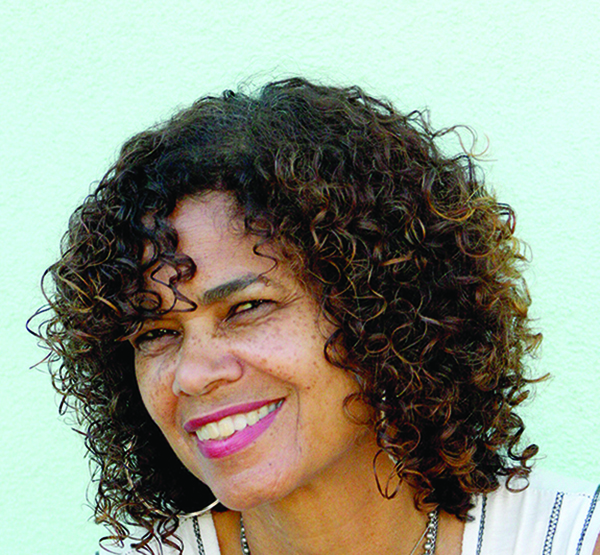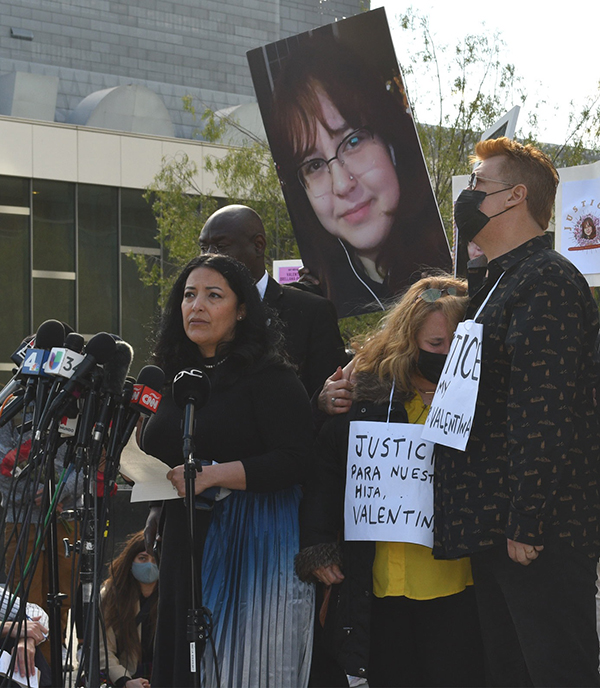Proposition 50 is necessary to protect bedrock civil rights

Erin Aubry Kaplan
By Erin Aubry Kaplan
Guest Columnist
California voters are days away from deciding on Proposition 50, the ballot initiative that would redraw the state’s congressional map to hand more seats to Democrats. The measure is meant to counter President Donald Trump’s ongoing campaign to get other, Republican-led states to blatantly create new maps that will favor the GOP in next year’s midterms.
As the Nov. 4 special election gets closer and the stakes of the outcome get higher I keep thinking: What would John Lewis say?
Lewis, the longtime Georgia congressman and civil rights icon who died in 2020, deeply believed in voting and fair representation as the bedrock of racial justice, and of justice for all. Alarmed by the GOP attacks on voting and elections, which began in earnest after the Supreme Court tossed out a key provision of the 1965 Voting Rights Act more than a decade ago, Lewis fought back.
The Voting Rights Advancement Act, first introduced and co-sponsored by Lewis in 2015 (later renamed for Lewis after his death), sought to restore the protections, known as preclearance, cut from the 1965 Voting Rights Act. It also sought to prohibit gerrymandering — the practice of carving up congressional districts in a way that advantages one political party or group.
Though always a bipartisan practice, gerrymandering was used historically, chiefly in the South, to suppress or dilute the voting power of Black people and other people of color and deny them representation of their choice. While still in play, Lewis’ bill has yet to make it into law after multiple attempts to overcome opposition from Republicans, and a few Democrats.
We are now at a point that not even Lewis could have imagined, with Trump, 10 months into his second term, facilitating a full-on gerrymandering war between the states. It began with the president’s demand earlier this year that the GOP in Texas rewrite maps and create five more congressional seats he says Republicans are “entitled to” in order to boost the party’s chances of winning the 2026 midterm elections.
Texas lawmakers obliged. Other red states are in various stages of following suit It all prompted outrage from California Gov. Gavin Newsom, who decided that Democrats in the nation’s most populous blue state couldn’t stand by and watch the GOP gerrymander their way to a point where elections might not matter at all. So he and other California Democrats quickly devised what became known as the Election Rigging Response Act and fast-tracked it onto the ballot.
Proposition 50 temporarily sets aside current congressional maps drawn by the state’s independent redistricting commission and replaces them with new maps designed to give California five more Democratic districts. It’s gerrymandering, to be sure, but with the specific intention of neutralizing the GOP gerrymandering that many say isn’t just another power grab, but a clear and coordinated undermining of democracy itself.
Newsom and others have called Proposition 50 fighting fire with fire, though it’s important to note that the fires are not fueled by the same thing. Other Democratic-led states, such as New York and Maryland, are answering Newsom’s call to arms by looking into redrawing their own congressional maps, though no plans for change have been finalized, either legislatively or through state propositions.
California voters seem so far to be siding with Newsom: A recent Emerson College poll shows that 51% plan to vote for the measure, while 34% plan to vote no.
Lots of Black Californians, including those whose families arrived during the Great Migration last century, have roots in Texas; they include Assemblyman Isaac Bryan, one of many members of the California Legislative Black Caucus who supports the proposition. For many Black people the gerrymandering fight is not only personal and political, but deeply rooted in history.
At stake is not just reining in Trumpian overreach, but thwarting white supremacy and preserving the civil rights gains people like Lewis fought hard for and in some cases died for (Lewis himself almost met his end on the Edmund Pettus Bridge in 1965, beaten severely by police as he and others attempted to march to Selma for voting rights).
State Sen. Akilah Weber Pierson, D-San Diego, who chairs the California Legislative Black Caucus, invoked that battle in a press conference with Newsom earlier this month, calling Prop. 50 “our weapon,” and noting that representation “is not some abstract concept,” but power that affects funding for essentials such as housing, education, criminal justice and health care.
There’s no doubt that Proposition 50 is a unique move born of necessity, a product of the urgency of this moment created by Trump’s relentless march toward authoritarianism that isn’t even a year old. Drastic times have produced a drastic measure, with more likely to follow.
I don’t know what John Lewis would have said about what brought us to this brink, and what it says about the state of the nation. I’m sure he would have been heartbroken. And then he would have fought back.
Erin Aubry Kaplan is an award-winning journalist who examines the persistent barriers to racial justice and opportunities for progress in an era of receding Black presence in Los Angeles and California. This article was produced by Capital & Main, a nonprofit publication focused on inequality. It is published here with permission.
LIFTOUT
Newsom and others have called Proposition 50 fighting fire with fire.





